13 Grammatical Mistakes That Are Making You Look Bad (original) (raw)
1 / 14
The importance of proper grammar
Your probably making grammar mistakes on accident. Did you catch the two gaffes in the previous sentence? Remember to always use the contraction “you’re” when you mean “you are.” “Your” is a possessive pronoun, as in “fix your grammar mistake.” Also, be sure to use by accident instead of _on accident—”_by accident” is grammatically correct.
Grammar errors are easy to miss, and they’re often habitual. However, it’s important to fix them because they drive readers crazy. They make you look bad, especially in a professional setting. If you’re corresponding with a grammar purist—and there are plenty out there—you could even be causing unintended rage. Here are some of the most common grammar mistakes with tips on how to correct them. But, of course, grammar rules do change sometimes, like these grammar rules that changed in the last decade.
2 / 14
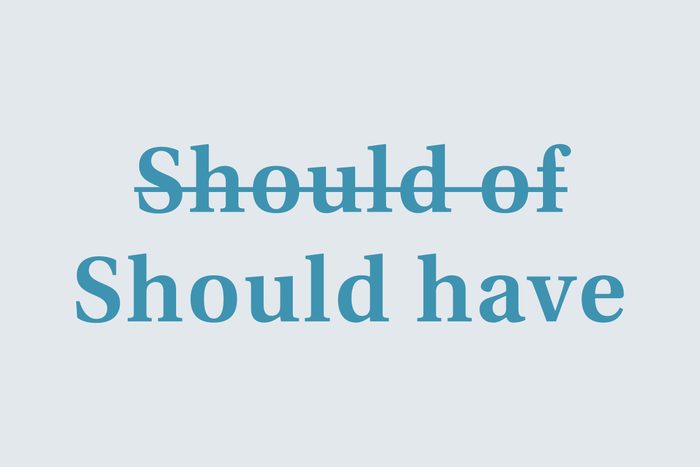
rd.com
“Should of” instead of “should have”
“Should of,” “could of,” and “would of” are not expressions. In all of those scenarios, when people say or write “should/could/would of,” they mean “have.” And to be fair, when people say these out loud, they virtually never pronounce “should HAVE.” They say “should’ve,” a contraction of “should have,” which sounds a whole lot like they’re saying “should of.” This leads people to think the expression is, and spell it, “should of.” But don’t let the speedy pronunciation fool you—the only correct expression is “should(/could/would) have.” Read the 54 words even super smart people mispronounce.
3 / 14
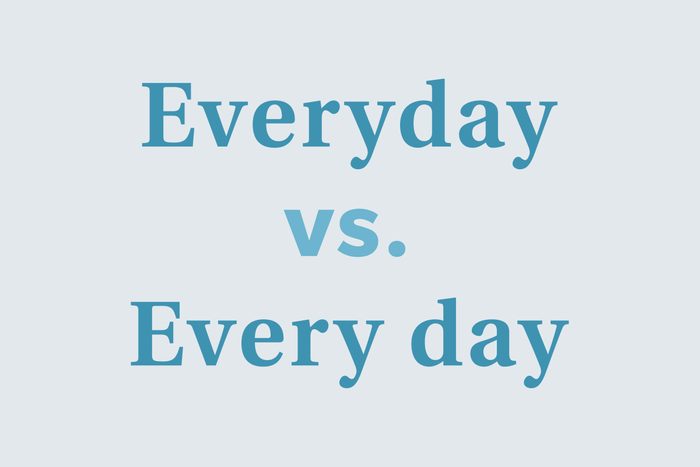
rd.com
Everyday vs. every day
Grammar errors may be an everyday part of your writing. The adjective “everyday” means commonplace, daily, or ordinary. In noun form, you can use it to designate a routine occasion. However, this compound word does not refer to the unit of time known as a day. When you mean “each day,” remember to separate the words, as in “I proofread my writing every day.” Here’s more on how to use “every day” and other pairs of words everyone combines into one.
4 / 14
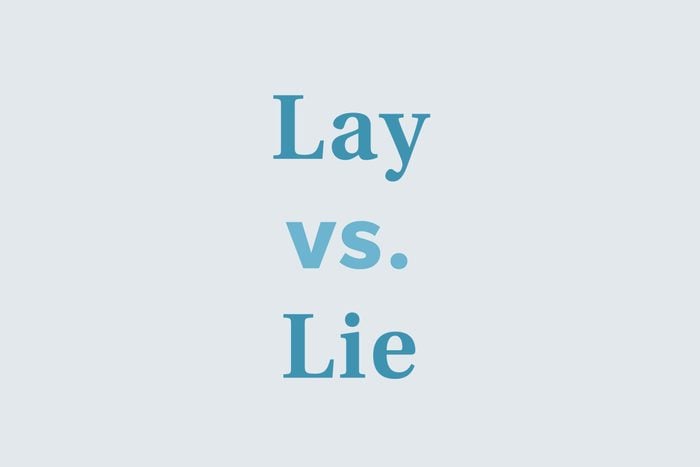
rd.com
Lay vs. lie
The Merriam-Webster Dictionary forgives you for mixing up these common verbs—they’ve been confusing English speakers for centuries, in part, because “lay is the past tense of lie, and laid is the past tense of lay.” One way to keep track of the difference is to consider if you mean “to place” or “to be.” “Lay” is transitive (it requires an object) and means to place down in a flat position. “Lie” is intransitive (it makes sense without an object) and means to be in a flat position or to be moving toward one. As Grammarly puts it, “You lie down, but you lay something down.” Still confused? Here are the 20 most confounding rules in the grammar world.
5 / 14
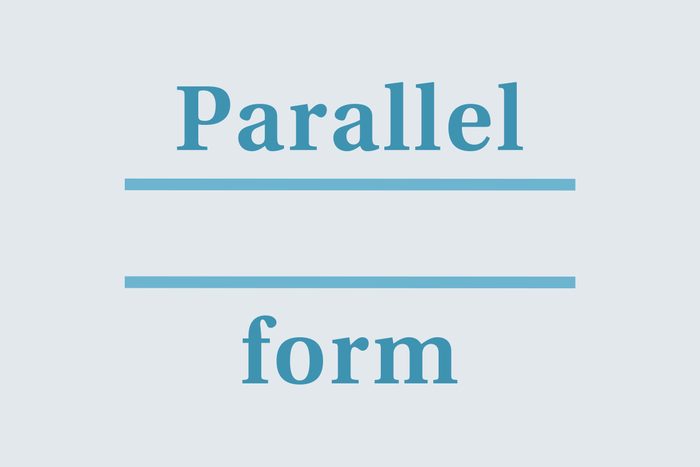
rd.com
Use parallel form
Appealing sentences employ parallel structure, use correct grammar, and adopt proper punctuation. Use parallel structure to put each item in your sentence in the same form, especially if you’re using a series or list. Sentences come across as unwieldy and awkward when forms don’t match. Consider a sentence like, “Good writing uses great wording, having good ideas, and no mistakes.” Ugh. Parallel structure (with each phrase in the same noun or verb form) is grammatically correct, and it also sounds better. Parallel form delivers controlled sentences, streamlined ideas, and polished phrasing. Here some of the grammar rules it’s safe to ignore.
6 / 14
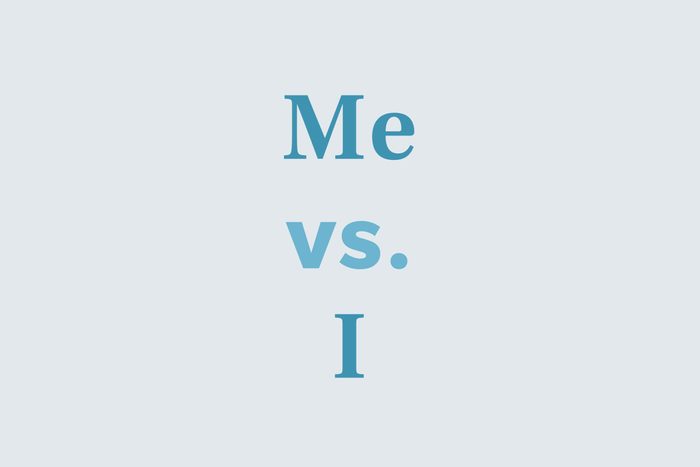
rd.com
Me vs. I
Copy Editor Laken Brooks’ biggest grammar pet peeve happens when writers misuse “me” and “I.” She explains that “I” is a subject pronoun while “me” is an object pronoun. To understand the difference, consider who is doing the action in the sentence. Brooks says, “A rule that helps me remember the difference is to use a subject pronoun when it is the subject of the sentence. If I am doing the acting, then I’ll use ‘I.’ If I’m not doing the acting or if I’m being acted upon, I’ll probably use ‘me.’ For example, ‘Jeremy hit the ball to me or I?’ Me/I is not the subject because Jeremy is doing the acting; Jeremy is hitting the ball. So, use the object pronoun and write, ‘Jeremy hit the ball to me.'” Get it? See if you can pass this high school English quiz.
7 / 14
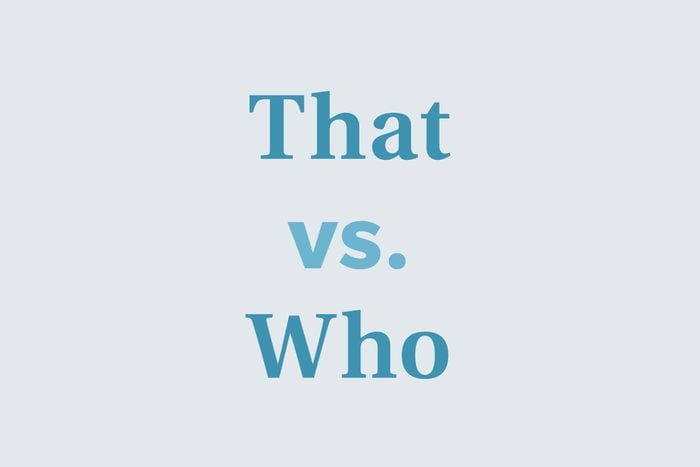
rd.com
Using “that” when you mean “who”
It’s highly possible you’re being annoying when you use “that” instead of “who.” For example, which of the following sentences sounds right to you? “People that make grammar mistakes annoy me” or “People who make grammar mistakes annoy me”? It turns out, using “that” may not be technically incorrect, but when referring to people, use the pronoun “who” to emphasize that they’re human. Check out the 15 words that people don’t think are actually words (hint: they are).
8 / 14
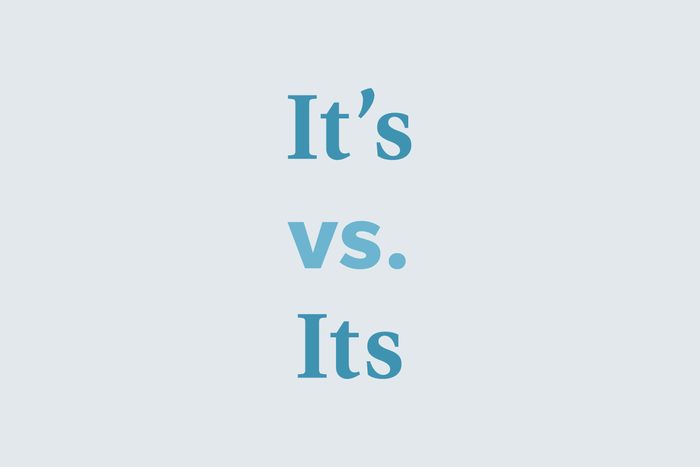
rd.com
It’s vs. its
You learned a long time ago that an apostrophe indicates possessive form, as indicated in the difference between phrases like “the book’s cover” and “the books cover.” Apostrophes also link two words together in a contraction. A common grammar error uses the contraction “it’s” (which means “it is”) as the possessive form of “it.” Have you ever been annoyed by incorrect sentences like “it’s mouth was open,” which really means “it is mouth was open”? For the possessive form of “it,” there’s no apostrophe required. Don’t miss the 33 eighth grade vocabulary words that even adults still get wrong.
9 / 14
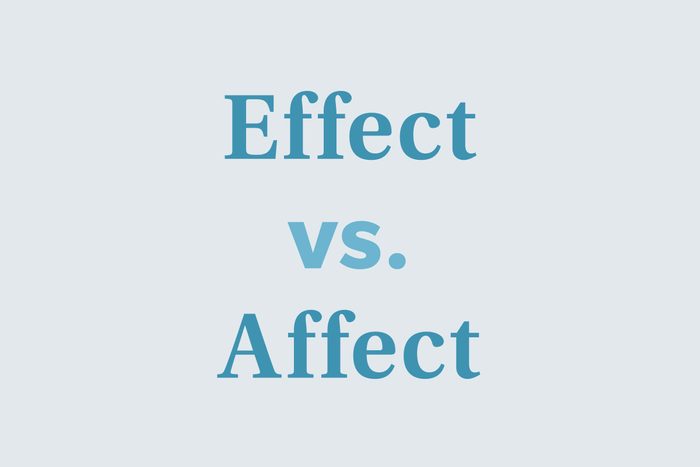
rd.com
Effect vs. affect
These two words are easy to confuse because they each exist in noun and verb form. To keep it simple, try to remember that “affect” is usually going to be a verb, and “effect” is usually going to be a noun. That’s not always the case, but it will help you keep the two words straight. It gets extra confusing because the verb “affect” literally means to produce an effect, a result. You can think of it as “Affect with an A is an Action” and “Effect with an E is an End-result.”
10 / 14
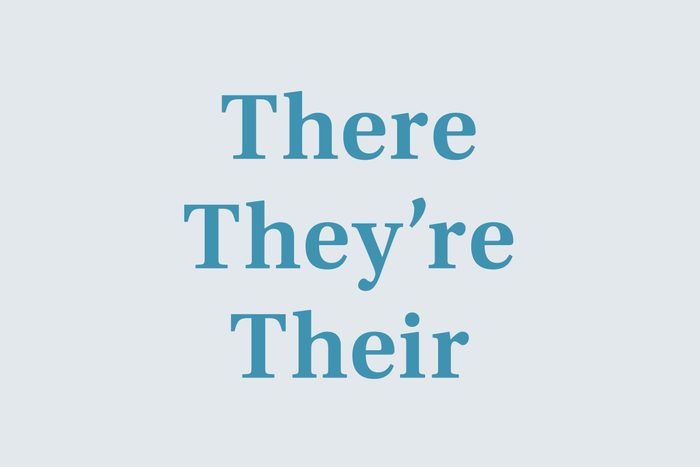
rd.com
There, they’re, and their
When you use all the different kinds of “there” interchangeably, you’re going to drive the person reading your writing crazy. “There” is a pronoun, adverb, and more rarely, a noun and adjective. “There” doesn’t mean the same thing as “they’re” (the contraction for “they are”), although it’s often used as a substitute—incorrectly. Keep in mind that “their” is the possessive form of “they.” They’re over there in their boat. Got it? Find out the 26 words (and phrases) that make you sound stupid, and stop using them!
11 / 14
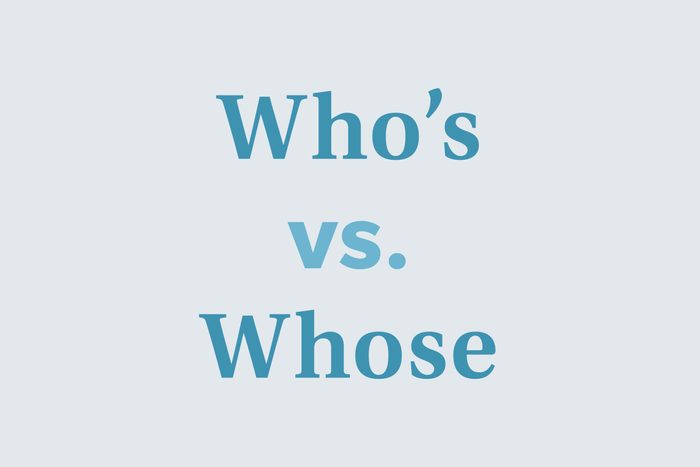
rd.com
Who’s vs. whose
Contractions, meant to simplify language, really mess things up when it comes to grammar errors. The mixing up of “whose” and “who’s” is a popular grammar pet peeve. “Who’s” is a contraction for “who is” or “who has.” “Whose” is a possessive pronoun, usually for “who” or “which.” You’ll look bad if you switch them around, as in “who’s error was this?” or “whose the hero who caught the error?” Use “whose error” and “who’s the hero.” Find out the redundant phrases you should stop using.
12 / 14
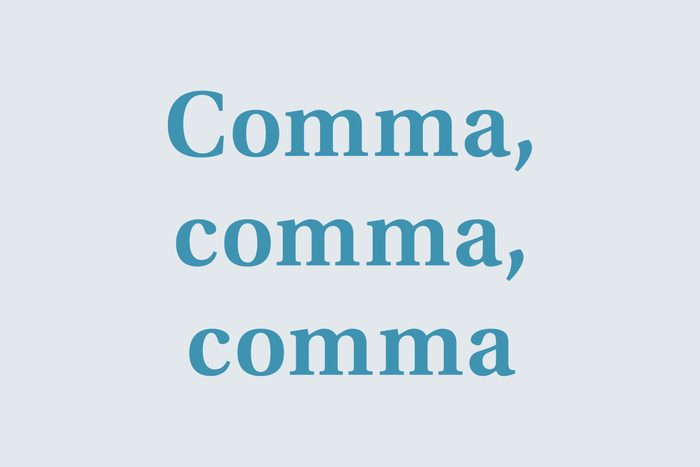
rd.com
Comma splices
The worst cover letters are littered with comma splices, you’ll be judged harshly. See? The previous sentence links two separate ideas with one comma. A comma splice links independent clauses with commas, often going on and on in a way that feels literary, but causes irritation. The period is your friend. It’s the best punctuation to use at the end of each complete thought or sentence. Find out how a semicolon comes into play too with the only ways you should use a semicolon.
13 / 14
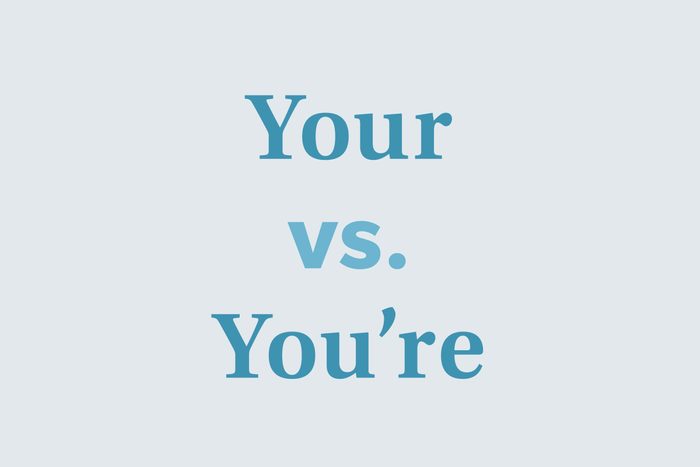
rd.com
Your vs. you’re
This is the mistake that probably makes you look the worst, whether you’re texting your bestie or emailing your nemesis. Keep in mind that “your” does not mean “you are,” so common phrases like “you’re wonderful” or “you’re an idiot” will not land well if you use “your.” Check out 12 grammatical errors smart people make.
14 / 14
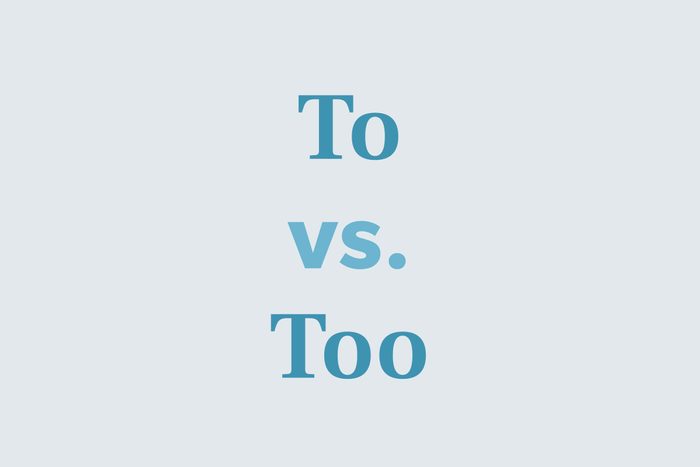
rd.com
To vs. too
Are you finding it too hard to keep track of too many grammar rules? It may seem unfair to be judged too harshly on simple-to-make errors. However, the grammar quibblers are out there. Using “too” when you mean “to” can get you in trouble. “Too” means more or very or excessively—so add an extra “o” to “to” when you mean “too.” “To” is a common, frequently used preposition. It only has one “o.” Check out the 14 grammar myths that your English teacher wasn’t telling the truth about.